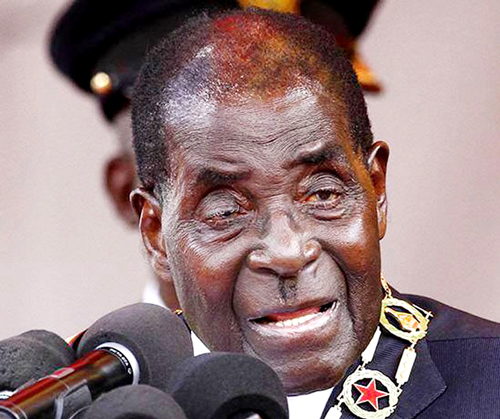
African leaders love blaming everything on the hidden hand of the West for their failures. This is not to exonerate the west on how it has historically manipulated developing countries, but highlighting that our African leaders have played the victim card far beyond its shelf life. But in the process, they submit themselves to Western manipulation.
Develop me: Tapiwa Gomo
It is not uncommon for an African leader to blame the lack of development of their countries on Western countries. Everything about their failure is blamed on someone or something foreign. That they have lacked foresight is never part of their confession narrative. It is never their fault.
History so far tells us that our post-independence leaders are the least productive and developmental compared to pre- and colonial eras. The pre-colonial leadership produced the Great Zimbabwe and other historical monuments scattered across the continent. They defined what Africa was before its encounter with the outside world. There was some form of long-term planning and implementation of those plans. There was a desire to be better and to improve the lives of their people.
Today’s crop of leaders has produced nothing and instead have become purveyors of Western interests by linking their policies to foreign investment and seeking political endorsement from the West. We all know that things went bad when our own leadership in Zimbabwe felt divorced by the British government in 2000s.
Everything had to be destroyed because of that divorce. It was destruction that did not have a replacement plan on moving forward. That is why we are stagnant and are where we are today.
Once elected into office, the current crop of leaders works towards earning respect from the West than the people who voted them into office. They manufacture excuses for their failures while perpetuating the colonialist imperial agenda.
They are happy keeping Western countries happy than their own people who vote them into office. They are also the worst in defending their national interests and good at lining their pockets with national resources and protecting personal interests.
- Chamisa under fire over US$120K donation
- Mavhunga puts DeMbare into Chibuku quarterfinals
- Pension funds bet on Cabora Bassa oilfields
- Councils defy govt fire tender directive
Keep Reading
When one looks at the African continent today, only a few cities, towns and roads have been built after independence with the rest of what see being inheritance from the colonialists.
The infrastructure that we see today in most countries was built before independence. In a country like Zimbabwe, the most notable change, was the change of names for streets and roads. If the late former Rhodesian Prime Minister Ian Smith was to rise today, his only cause of shock would be how dilapidated the structures his people built have become.
The water system, power generation, roads, the telecommunication infrastructure and the towns and cities were created by his people. The Zimbabwe as we know it today is the master plan of the colonialists. The only difference is that the master plan has been heavily maimed by neglect by our current leaders.
Reading the history of the
Anglo-Boer War, I could not believe how the Boers worked hard to establish what South Africa is today. It took more than love for what they called home, but intense determination to put a country on a long term development path. The word planning was not just for politicking, but represented a real long-term vision for the future.
Upon invasion by the British, the Boers put up a good fight — a fight whose determination was inspired by nothing but the love and defence of their territory. They fought to defend what they had started, their future plans and their source of nationhood. Even though the British defeated them, the fight and the love for their what they called their country did not stop.
The South Africa we see today is their master plan. The roads, infrastructure and the rest of the system is what the Boers put in place centuries ago. This explains why most of the cities and towns have retained the Afrikaner names for their roads, buildings and rivers. Even the British upon winning the Anglo-Boer War in 1900s, realised and respected how much effort had been put into setting up the systems and getting a country on its rails.
None of that was achieve without adversity but they did not use that as an excuse for not developing. To their credit, the British after winning the 1900s war, did not discard, erase or trash the already established plans by the Boers; instead they continued supporting their implementation which has gotten South Africa where it is today.
I don’t know that if we ask the current African National Congress government for a long-term plan with a vision longer than five years, they can produce one.
Post-independent African politicians have demonstrated their lack of vision and have invested much of their effort on politics and winning the next election. Their planning is limited to five-year economic policies and there is limited or nothing on the long-term vision of their countries.
And for that reason, most African countries have remained stagnant only making dashboard economic growth which does not translate into development.
Tapiwa Gomo is a development consultant based in Pretoria, South Africa











